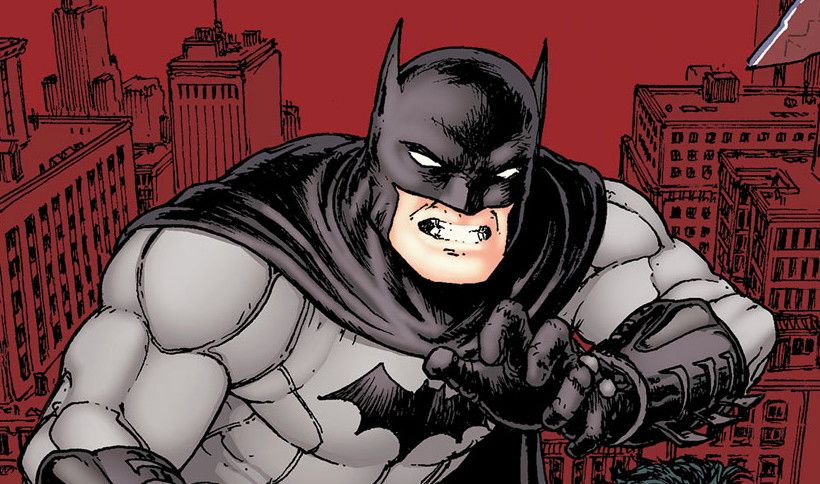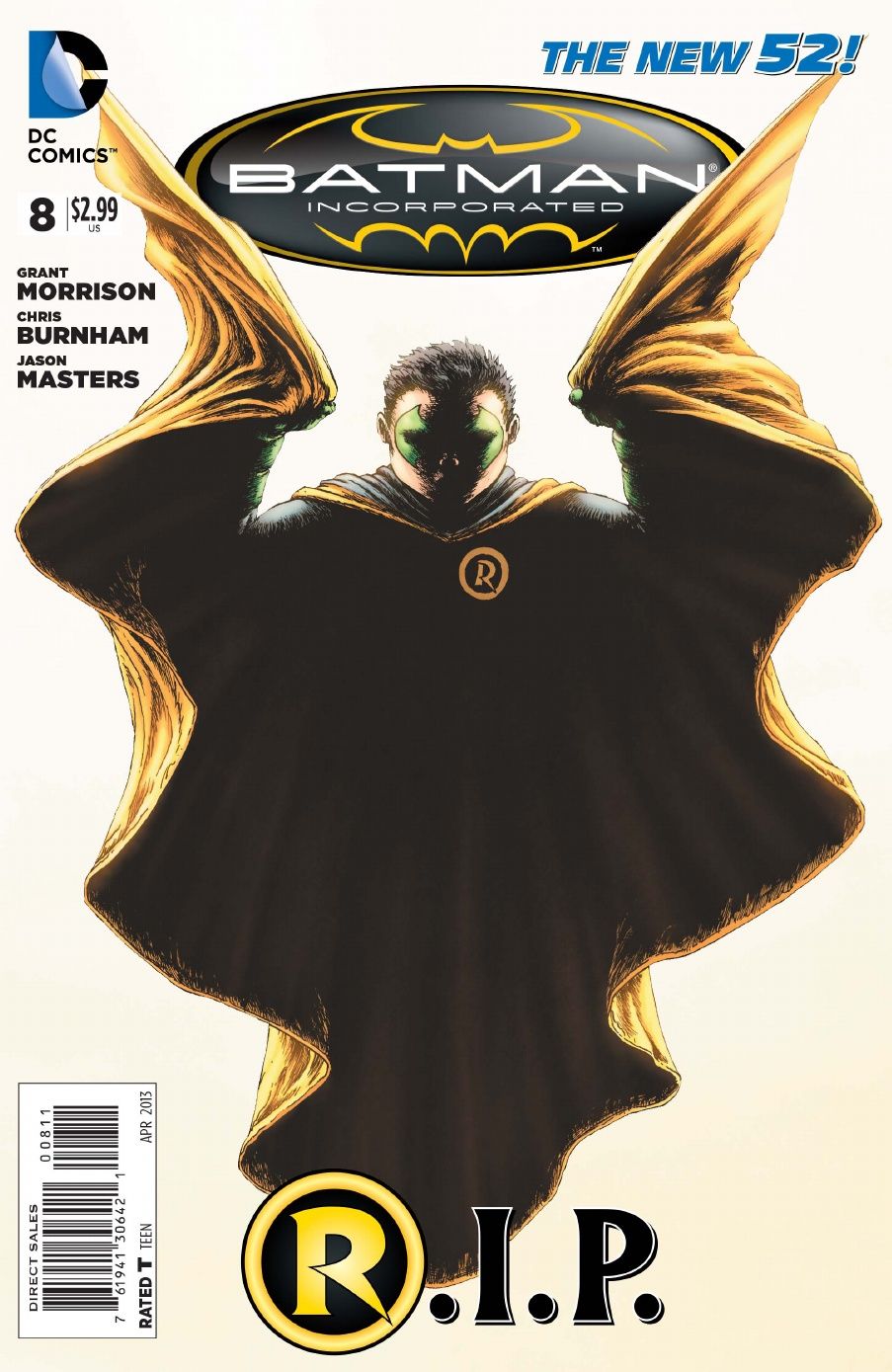Warning: Spoilers for Batman Inc. #8, The Dark Knight Rises, and Ridley Scott's Prometheus follow.
Grant Morrison's reflection on his Batman run is interesting, in that it offers insight into what the writer thinks makes the character tick, but the part that jumps out at me was the very end where he brings up Robin and asks, “What son could ever hope to replace a father like Batman, who never dies?”
It’s something I’ve been thinking about since seeing Ridley Scott’s Prometheus. As flawed as that film is, it has some intriguing ideas about the relationship between creator and creation, whether that’s alien and human, inventor and android, or parent and child. On that last dynamic, Charlize Theron’s character Vickers observes, “A king has his reign, and then he dies. It’s inevitable.” That’s a horrible thing to say about your father. It is, however, true.
The natural order of things is for parents to be replaced by their children. Peter Weyland created Vickers and at some point, it’s his job to get out of the way so she can have her time. Vickers’ comment echoes one that Michael Fassbender makes earlier in the film about how everyone wants to kill his or her parents. That’s another horrible thing to say and not literally true, but it describes a true phenomenon: The creation is meant to outlive and supplant the creator. Weyland was trying to subvert that order by becoming immortal. He failed, but Bruce Wayne has succeeded. Unfortunately for Robin.
It started the way it’s supposed to. Batman, the fictional character, outlasted and replaced his creators. But because a company owns him, the natural process stops there. There’s no reason for him to go away. Ever. As long as he continues to make money, the king never dies. He never gets out of the way and he never passes the throne to his heir. That’s what Morrison describes in his essay. The Dark Knight Rises aside, no one besides Bruce Wayne – not Dick Grayson, Damian Wayne, Jean Paul Valley or anyone else – gets to be Batman for long. Batman does not R.I.P. Bruce Wayne always returns.
Morrison has been clear that this meta commentary has been the central theme of his Batman run, but it’s felt innocent up until now. Batman Forever! Yeah! But here at the end, there’s a different mood. Why did Morrison even create Damian Wayne if he knew full well the son couldn’t replace the father? When it comes to company-owned superheroes, we’re used to seeing new characters created as material for future storytellers, but now it appears that Damian was always meant to die -- not because Morrison’s cleaning up after himself, but because that death is integral to the theme.
It seems that in thinking about the notion of an immortal, corporate-owned hero, Morrison realized that it’s wrong. He found a flaw in the concept, a loose thread. And being Morrison, he pulled on it until the whole thing unraveled. Based on his comments at the end of the DC essay, he did it on purpose. “He’ll still be here long after I’m dead and forgotten,” he writes. “Long after all of us have come and gone, there will be Batman.” Because that includes Damian, the idea of an immortal Batman is less exciting. It’s certainly less positive. If we weren’t already aware of it, Morrison lets us know in no uncertain terms that there’s a downside to Batman Forever, and it’s not just Tommy Lee Jones as Two-Face.



